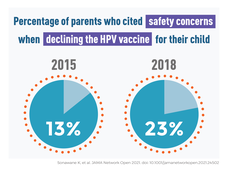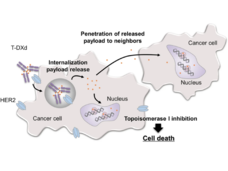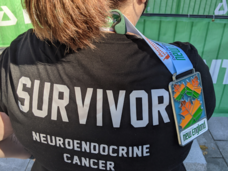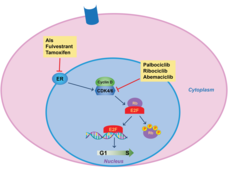October 2021 - Cancer Currents Blog
-
Does Too Much Fructose Help Colorectal Cancers Grow?
Excess fructose can promote obesity and colorectal cancer, a new study shows. In mice, the study found that the sweetener, a component of table sugar and high-fructose corn syrup, increased how long normal and cancer cells in the intestines live.
-
Adjuvant Immunotherapy Approved for Some Patients with Lung Cancer
Atezolizumab (Tecentriq) is now the first immunotherapy approved by FDA for use as an additional, or adjuvant, treatment for some patients with non-small cell lung cancer. The approval was based on results of a clinical trial called IMpower010.
-
Despite Proven Safety of HPV Vaccines, More Parents Have Concerns
Despite consistent evidence that HPV vaccines are safe and effective, a new study shows that more parents are citing concerns about their safety. Researchers cautioned that efforts are needed to counter this trend and improve vaccination rates.
-
Enhertu May Be Preferred Therapy for Some Metastatic Breast Cancers
In people with metastatic HER2-positive breast cancer, the targeted drug trastuzumab deruxtecan (Enhertu) markedly lengthened progression-free survival compared with trastuzumab emtansine (Kadcycla), new study results show.
-
From Scan to Scan: The Challenges of Living with Metastatic Cancer
New treatments are helping more people with advanced or metastatic cancer live longer. At a recent NCI conference, survivors and researchers came together to discuss how to better address the needs of those living with metastatic cancer.
-
Pembrolizumab May Help Prevent Early-Stage Melanoma from Returning
Trial results show patients who received the immunotherapy pembrolizumab (Keytruda) after surgery to remove high-risk stage II melanomas were less likely to have the cancer come back than those who received no treatment after surgery.
-
Combo of Ribociclib, Letrozole Improves Survival in Advanced Breast Cancer
In a large clinical trial, women with HR-positive, HER2-negative metastatic breast cancer treated with ribociclib (Kisqali) and letrozole (Femara) as their initial treatment lived approximately 1 year longer than women treated with letrozole only.






